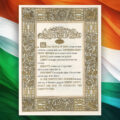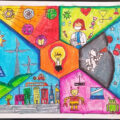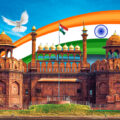
“Multilateral organizations rarely die. They fade into irrelevance,” said the Indian representative at the UN General Assembly. This is a valid point. The American invasion of Iraq, the Russia-Ukraine war, and the ongoing Israel-Palestine conflict show how the UN is stuck in an outdated 1945 mindset. The world has changed a lot since World War II ended, but the UN Security Council still looks like it’s stuck in the past.
Huge regions like Africa and Latin America don’t have permanent seats on the UN Security Council (UNSC), even though Africa has over 1.4 billion people and Latin America has over 600 million. Meanwhile, a small European country like Great Britain, with only 60 million people, has a permanent seat. This unfairness is because of old war victories, not today’s realities, a situation shared by France, the United States, China, and Russia.
The UN needs to change to match the current world. This should start with expanding the UNSC. There’s no good reason to keep India out anymore. India has 1.4 billion people and is a major military power with nuclear weapons. Joining the UNSC would honor the council more than India, making it more balanced and powerful. The same goes for Africa and Latin America. They aren’t asking for favors; they are claiming their rightful place in the world.
Western countries say they support India for a UNSC seat, but their actions don’t show it. Have they tried to negotiate with China, the one country blocking India? The current setup suits their interests, letting them boss around smaller countries while doing whatever they want. This hypocrisy makes the UN look bad and shows it’s more about power struggles than solving problems.
The UN keeps interfering in India’s domestic affairs but fails to fix serious global issues. It focuses on India’s policies but does nothing effective about crises like Syria, Ukraine, the Israel-Palestine conflict, terrorism, and climate change. This shows a messed-up sense of priorities and reduces the UN’s credibility as a global peacekeeper.
The UN General Assembly has 192 member states, but the Security Council has only 15 members, including five permanent ones with veto power. Many countries misuse this veto. For example, in 2011, Russia and China blocked a resolution on Syria, protecting their allies and preventing peace. Russia has also used its veto to stop actions on Ukraine and Crimea. Historically, the USSR and now Russia have used the veto a lot, and the US often uses it to protect Israel. Since 1946, there have been 263 vetoes stopping resolutions, which were supposed to reward WWII victors but now block progress on important issues like Syria, Palestine, and Ukraine.
The UN needs to reform to stay relevant and effective. Expanding the Security Council to reflect the real global order is necessary. Should the UN give up the veto power? Or should it dissolve the biased system and create a fairer organization that includes the voices of millions currently unheard?
The answer lies in US, dear students. It is us, who are responsible for the future UN, it is only, and only the student sector of the society that can bring any change as future citizens. From the Vietnam War protest to the recent Bengal heinous case, time and again, students have shown that they can change history. By being the best version of ourselves and getting involved in global problems, perhaps we can bridge the gap between MUNs and UNs.
November, 2024































